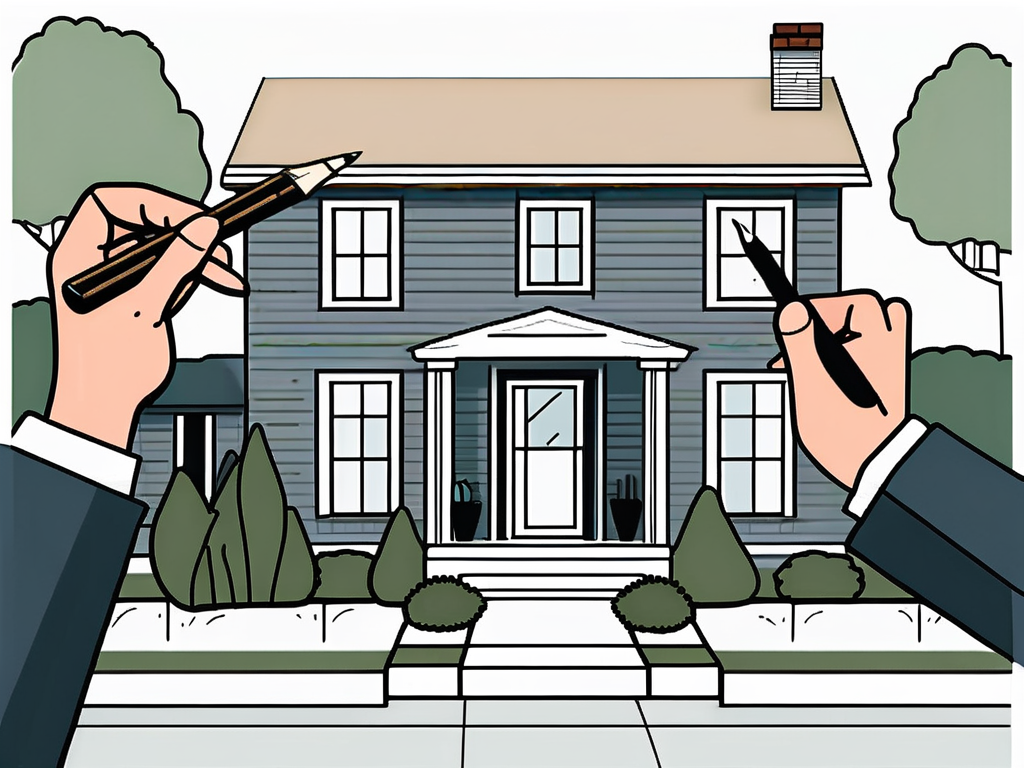Selling Your House Without a Realtor in North Carolina
When it comes to selling your house in North Carolina, you have a variety of options. One of these is to sell your house without a realtor. This approach, known as For Sale By Owner (FSBO), can save you thousands of dollars in realtor commissions. However, it also requires a good deal of effort and know-how. In this guide, we'll explore how to successfully navigate the FSBO process in North Carolina.
Understanding the FSBO Process
The FSBO process involves selling your house directly to the buyer without the assistance of a realtor. This means you'll be responsible for all aspects of the sale, from setting the price to marketing the property, negotiating with buyers, and closing the deal.

While this may seem daunting, many homeowners find the FSBO process empowering. It gives you full control over the sale of your property, allowing you to set your own terms and make decisions that best suit your needs.
Legal Requirements in North Carolina
When selling your house without a realtor in North Carolina, it's important to understand the legal requirements. North Carolina law requires sellers to provide a Residential Property Disclosure Statement to prospective buyers. This document includes information about the property's condition, any improvements or alterations made, and any known defects.
Additionally, North Carolina law requires a deed to transfer property. The deed must be signed and notarized, and then recorded at the county register of deeds office. It's also important to note that North Carolina is an "attorney state," which means a lawyer must be present at closing.
Setting the Right Price
Setting the right price for your house is one of the most crucial aspects of the FSBO process. Price your house too high, and it may sit on the market for months. Price it too low, and you could lose out on potential profit.
To determine the right price, you'll need to conduct a Comparative Market Analysis (CMA). This involves comparing your house to similar properties in your area that have recently sold. Consider factors like location, size, age, condition, and amenities.
Appraisal and Inspection
Getting your house appraised and inspected can provide a more accurate picture of its value. An appraisal will give you an objective estimate of your home's market value, while an inspection will reveal any hidden issues that could affect the sale price.
While these services come at a cost, they can be invaluable in setting a fair and competitive price for your house. Plus, having an inspection report on hand can be a powerful selling point to potential buyers.
Marketing Your Property
Without a realtor to market your property, you'll need to take on this task yourself. This involves listing your property on real estate websites, placing ads in local newspapers, and using social media to reach potential buyers.

High-quality photos are a must when marketing your property. Consider hiring a professional photographer to capture your home in the best light. Additionally, writing a compelling property description can help attract buyers and highlight your home's best features.
Open Houses and Showings
Hosting open houses and private showings is another key part of marketing your property. This gives potential buyers the chance to see your home in person and envision themselves living there.
When hosting an open house or showing, make sure your home is clean, decluttered, and well-lit. Consider staging your home to make it more appealing and to help buyers visualize how they can use the space.
Negotiating and Closing the Deal
Once you've attracted a potential buyer, the next step is to negotiate the sale price and terms. This can be a complex process, and it's where many FSBO sellers feel the absence of a realtor most acutely.

However, with some preparation and research, you can successfully negotiate a fair deal. Be ready to make counteroffers, and don't be afraid to stand firm on your price if you believe it's fair.
Legal Assistance
As mentioned earlier, North Carolina is an attorney state, meaning a lawyer must be present at closing. However, it can be beneficial to have legal assistance throughout the negotiation process.
A real estate attorney can help you understand the legal aspects of the sale, draft or review the sales contract, and ensure all necessary documents are in order. While this will add to your costs, it can provide peace of mind and help prevent potential legal issues down the line.
Conclusion
Selling your house without a realtor in North Carolina can be a challenging but rewarding process. By understanding the FSBO process, setting the right price, effectively marketing your property, and successfully negotiating and closing the deal, you can save thousands of dollars and have the satisfaction of selling your home on your own terms.
Remember, while this guide provides a comprehensive overview of the FSBO process in North Carolina, every sale is unique. Be prepared to adapt and learn as you go, and don't hesitate to seek professional advice if needed.





